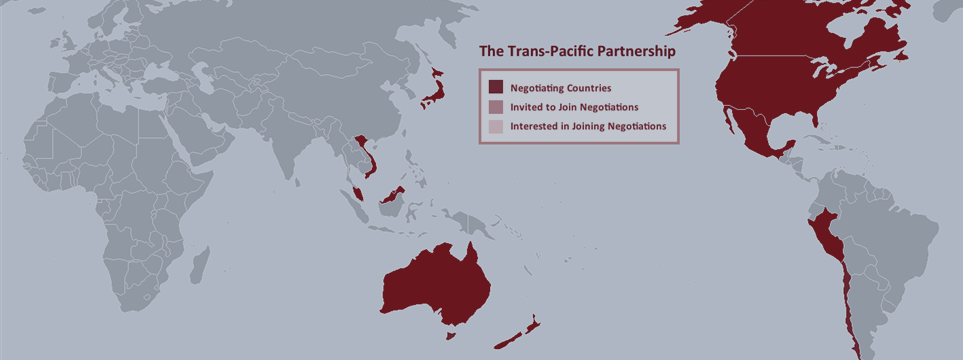Monday marked conclusion of the Trans-Pacific Partnership (TPP) – the biggest trade pact in two decades encompassing 40 percent of the world economy. Dubbed as transformational, it will take many years before the economic benefits are obtained, according to analysts.
After five years of negotiations, twelve countries across the Pacific Basin - Australia, Brunei, Canada, Chile, Japan, Malaysia, Mexico, New Zealand, Peru, Singapore, Vietnam - yesterday clinched a landmark free-trade agreement that will reportedly lower or eliminate tariffs on almost 18,000 categories of goods.
It is the largest trade pact the U.S. has negotiated since North American Free Trade Agreement (NAFTA) and the Uruguay Round were inked over twenty years ago.
Too early to celebrate
Before implementation, however, there are several challenges that need to be overcome.
First of all, the pact must be ratified by each country's legislature - a process that could take several months.
In the U.S., the leader of the initiative, many of President Barack Obama's fellow democrat
legislators, as well as labor groups, are afraid the TPP will cost
manufacturing jobs and weaken environmental laws. Some Republicans
meanwhile oppose provisions to block tobacco firms from suing governments
over anti-smoking measures.
"Democrats are opposed, as are leading Republican presidential candidates, including Donald Trump. With presidential elections due next year, the TPP may well get blocked in Congress," said Andrew Kenningham, senior global economist at Capital Economics.
Second, as Kenningham noted, tariffs are due to be lowered and market access increased only gradually, so the TPP won't be a game changer for the global economy in the near-term.
Evan Lucas, market strategist at IG agreed:
"The Trans-Pacific Partnership is
interesting from a political point of view, but from a market's
perspective it appears insignificant. Considering the outcry from the
Republican Party and even some Democrats, the deal is unlikely to see
daylight for years, if ever," Lucas said.
However, the longer-term importance of the agreement shouldn't be downplayed, if it gets passed by member states' parliaments, says Lucas.
Long-term effects
Lucas noted that if the TPP is implemented, the effect on most Pacific Rim nations will be GDP positive and thus the impact on global growth will be upbeat.
"It may just take several years. Soft
commodities, intellectual property and exportable services are the big
winners," he said.
The TPP pact arrived at a time of increased uncertainty over the global economy, with both the world's
second and third largest economies - China and Japan - on a slippery ground.
Doug Lippoldt, senior trade economist at HSBC commented: "The substantial, co-ordinated policy
initiative represents a meaningful step towards much-needed structural
reforms and demonstrates the feasibility of such initiatives in the
current environment."
Moreover, while the accord will roll
out over a period of years, Lippoldt notes that it will set
an agenda in favor of liberalization over the medium to long term.



